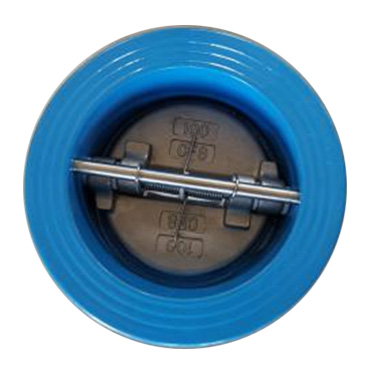Dec . 12, 2024 23:02 Back to list
industrial check valve
Understanding Industrial Check Valves A Key Component for Fluid Control
In various industrial applications, ensuring the unidirectional flow of fluids is paramount for safety and efficiency. One critical component that facilitates this is the check valve, often referred to as a non-return valve or one-way valve. This article aims to delve into the intricacies of industrial check valves, their functions, types, and importance in fluid mechanics.
What is a Check Valve?
A check valve is a mechanical device designed to prevent backflow in piping systems. It operates automatically, allowing fluid to pass through in one direction while blocking it in the opposite direction. The primary purpose of a check valve in industrial applications is to protect pumps and other equipment from potential damage caused by reverse flow, which can lead to system inefficiencies, contamination, or even catastrophic failures.
How Do Check Valves Work?
The operation of a check valve is typically governed by the pressure of the fluid flowing through the system. When the pressure in the direction of flow exceeds the pressure on the opposite side, the valve opens, allowing fluid to pass through. Conversely, when the pressure changes or drops, the valve closes, preventing backflow. Most check valves utilize a disc, ball, or flap mechanism to achieve this sealing effect. The design and material of the valve play a significant role in its performance and suitability for different applications.
Types of Industrial Check Valves
There are several types of check valves, each suited for specific applications and conditions
1. Swing Check Valve This type features a disc that swings on a hinge, allowing it to open and close based on fluid pressure. Swing check valves are typically used in low- to medium-pressure applications and are known for their ability to handle large volumes of fluid.
industrial check valve

2. Lift Check Valve Utilizing a vertically moving disc or ball, lift check valves are ideal for high-pressure applications. They are commonly found in steam, water, and gas pipelines, providing reliable backflow prevention.
3. Ball Check Valve In this configuration, a ball sits in a seat and moves with fluid pressure. When the flow is reversed, the ball is pushed back into its seat, providing an effective seal against backflow. Ball check valves are lauded for their simplicity and reliability.
4. Dual-Plate Check Valve This innovative design features two plates that move perpendicular to the flow. Dual-plate check valves are particularly effective in applications with varying flow rates, offering quick response times and minimal pressure loss.
Importance of Check Valves in Industrial Systems
Check valves are crucial in a myriad of industrial settings, including water treatment facilities, oil and gas pipelines, and chemical processing plants. Their role in maintaining proper flow direction can prevent equipment damage, reduce maintenance costs, and enhance overall operational reliability. By preventing backflow, check valves also ensure the integrity of the system, safeguarding against contamination.
Moreover, modern advancements in material science have led to the development of check valves that can withstand high pressures, extreme temperatures, and corrosive environments. This ensures that industries can select valves tailored to their specific operational requirements.
Conclusion
In summary, industrial check valves are essential components in fluid control systems, providing safety and efficiency by preventing backflow. Understanding the various types and functionalities of check valves allows engineers and operators to make informed choices when designing and maintaining industrial systems. As industries continue to evolve, the importance of reliable and effective check valves remains a cornerstone of fluid mechanics and system integrity. Whether in water treatment, oil and gas, or chemical processes, these valves play a significant role in ensuring operational excellence.
Share
-
Reliable Wafer Type Butterfly Valves for Every IndustryNewsJul.25,2025
-
Reliable Flow Control Begins with the Right Ball Check ValveNewsJul.25,2025
-
Precision Flow Control Starts with Quality ValvesNewsJul.25,2025
-
Industrial Flow Control ReliabilityNewsJul.25,2025
-
Engineered for Efficiency Gate Valves That Power Industrial PerformanceNewsJul.25,2025
-
Empowering Infrastructure Through Quality ManufacturingNewsJul.25,2025


